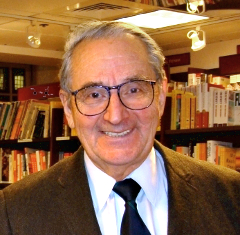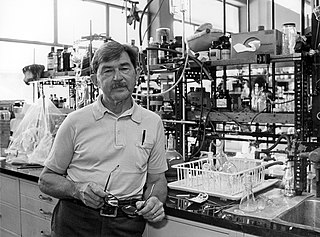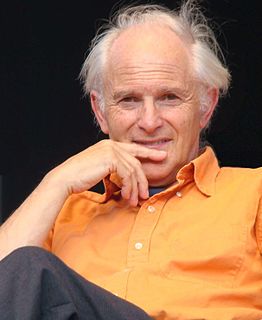A Quote by Justus von Liebig
I would... establish the conviction that Chemistry, as an independent science, offers one of the most powerful means towards the attainment of a higher mental cultivation; that the study of Chemistry is profitable, not only inasmuch as it promotes the material interests of mankind, but also because it furnishes us with insight into those wonders of creation which immediately surround us, and with which our existence, life, and development, are most closely connected.
Quote Topics
Also
Attainment
Because
Chemistry
Closely
Connected
Conviction
Creation
Cultivation
Development
Establish
Existence
Higher
Immediately
Independent
Insight
Interests
Life
Mankind
Material
Means
Mental
Most
Most Powerful
Offers
Only
Our
Powerful
Profitable
Science
Study
Surround
Those
Towards
Us
Which
Wonders
Would
Related Quotes
Without an acquaintance with chemistry, the statesman must remain a stranger to the true vital interests of the state, to the means of its organic development and improvement; ... The highest economic or material interests of a country, the increased and more profitable production of food for man and animals, ... are most closely linked with the advancement and diffusion of the natural sciences, especially of chemistry.
Undeveloped though the science [of chemistry] is, it already has great power to bring benefits. Those accruing to physical welfare are readily recognized, as in providing cures, improving the materials needed for everyday living, moving to ameliorate the harm which mankind by its sheer numbers does to the environment, to say nothing of that which even today attends industrial development. And as we continue to improve our understanding of the basic science on which applications increasingly depend, material benefits of this and other kinds are secured for the future.
I, like almost all chemists I know, was also attracted by the smells and bangs that endowed chemistry with that slight but charismatic element of danger which is now banned from the classroom. I agree with those of us who feel that the wimpish chemistry training that schools are now forced to adopt is one possible reason that chemistry is no longer attracting as many talented and adventurous youngsters as it once did. If the decline in hands-on science education is not redressed, I doubt that we shall survive the 21st century.
The most powerful influence exercised by the Arabs on general natural physics was that directed to the advances of chemistry ; a science for which this race created a new era.(...) Besides making laudatory mention of that which we owe to the natural science of the Arabs in both the terrestrial and celestial spheres, we must likewise allude to their contributions in separate paths of intellectual development to the general mass of mathematical science.
Times have changed, and science has made great progress, and so has our work; but our principles have only been confirmed, and along with them our conviction that mankind can hope for a solution to its problems, among which the most urgent are those of peace and unity, only by turning its attention and energies to the discovery of the child and to the development of the great potentialities of the human personality in the course of its formation.
Whenever education and refinement carry us away from the common people, they are growing towards selfishness, which is the monster evil of the world. That is true cultivation which gives us sympathy with every form of human life, and enables us to work most successfully for its advancement. Refinement that carries us away from our fellow people is not God's refinement.
Every attempt to employ mathematical methods in the study of chemical questions must be considered profoundly irrational and contrary to the spirit of chemistry.... if mathematical analysis should ever hold a prominent place in chemistry -- an aberration which is happily almost impossible -- it would occasion a rapid and widespread degeneration of that science.
The fact is that the beautiful, humanly speaking, is merely form considered in its simplest aspect, in its most perfect symmetry, in its most entire harmony with our make-up. Thus the ensemble that it offers us is always complete, but restricted like ourselves. What we call the ugly, on the contrary, is a detail of a great whole which eludes us, and which is in harmony, not with man but with all creation. That is why it constantly presents itself to us in new but incomplete aspects.
Let us not be blind to our differences-but let us also direct attention to our common interests and to the means by which those differences can be resolved. And if we cannot end our differences, at least we can help make the world safe for diversity. For, in the final analysis, our most common link is that we all inhabit this small planet. We all breathe the same air. We all cherish our children's future. And we are all mortal.
What actions are the most excellent? Those, certainly, which most powerfully appeal to the great primary human affections: to those elementary feelings which subsist permanently in the race, and which are independent of time. These feelings are permanent and the same; that which interests them is permanent and the same also.
There is no mission, nor interest to convert, and yet I believe that if this state of consciousness could become more universal, the pretentious nonsense which passes for the serious business of the world would dissolve in laughter. We should see at once that the high ideals for which we are killing and regimenting each other are empty and abstract substiutes for the unheeded miracles that surround us - not only in the obvious wonders of nature but also in the overwhelming uncanny fact of mere existence.






































